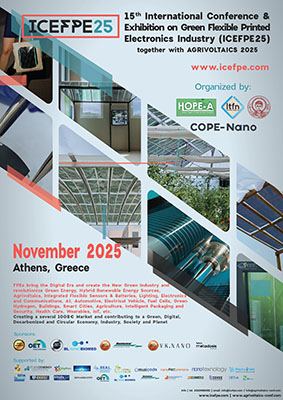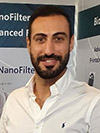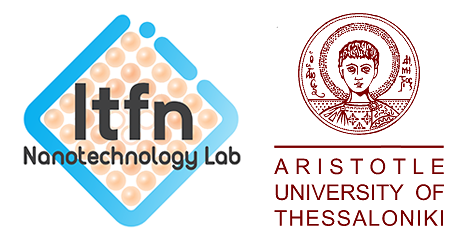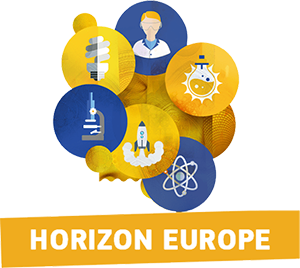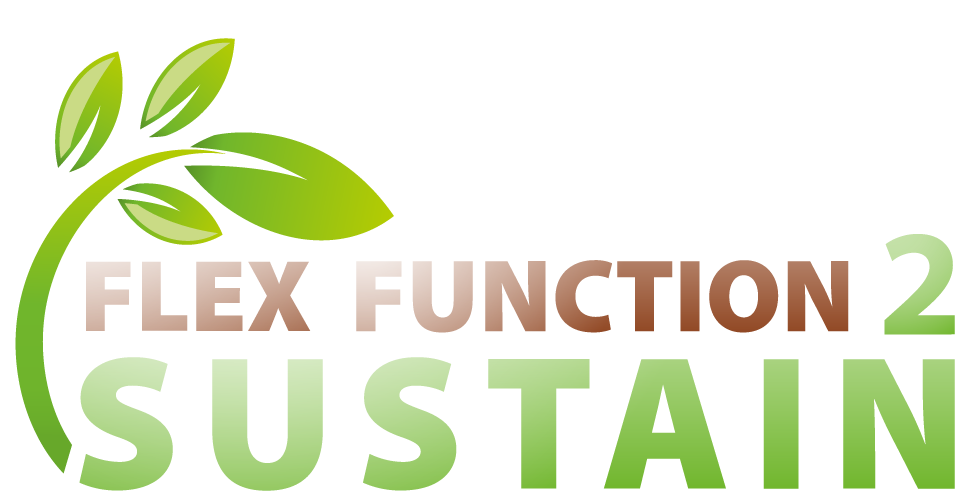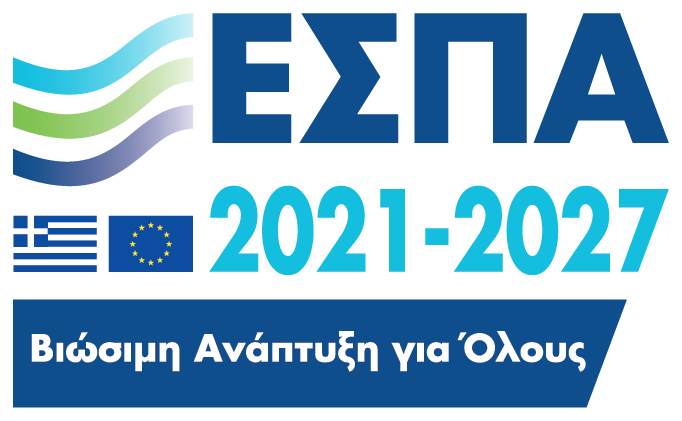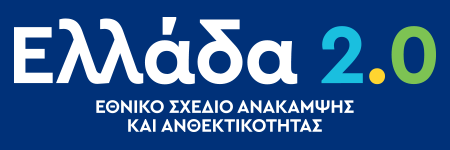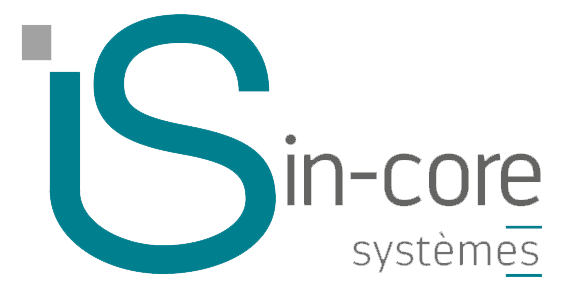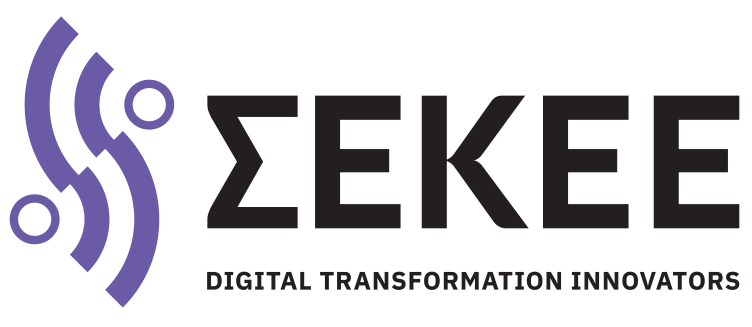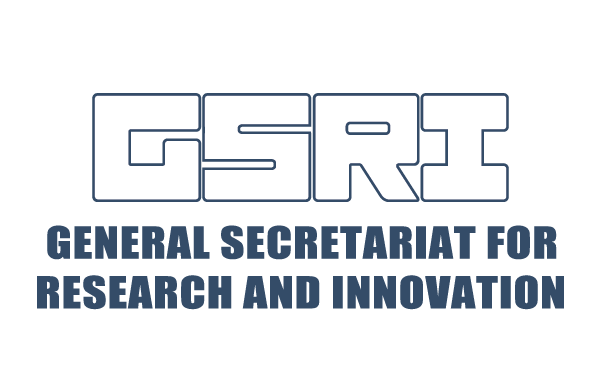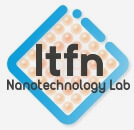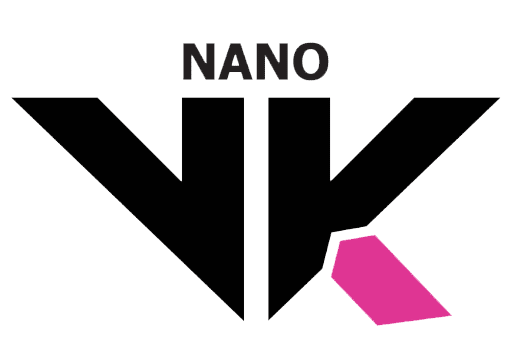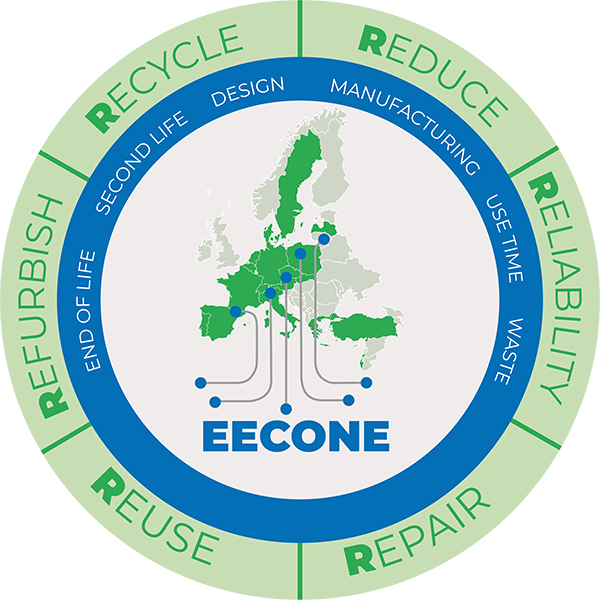The 15th International Conference & Exhibition on Green Flexible Printed Electronics Industry (ICEFPE25) and AGRIVOLTAICS 2025 are among the leading international events in the fields of Green Flexible Printed Electronics Industry and Agrivoltaics. These are organized by the Hellenic Organic & Printed Electronics Association HOPE-A, COPE-Nano | Nanotechnology Lab LTFN and International Nanotech Hub Thessaloniki (NHT) on 17 - 19 November 2025 in Athens, Greece.
ICEFPE25
The ICEFPE25 International Conference & Exhibition will bring together leading industrial stakeholders, renowned scientists, engineers, entrepreneurs, agronomists, investors, policymakers, and representatives from local, national, European, and international authorities. It will serve as a dynamic platform for high-level discussions, strategic networking, and effective collaborations aimed at shaping policy and driving innovation in the field of Green Functional Printed Electronics (FPEs).
This fast-growing, hundred-billion-euro industry encompasses a wide array of transformative applications - including Green and Renewable Energy, Building-Integrated Photovoltaics, Smart Cities and Agriculture, Energy-Autonomous Islands, Green Hydrogen, Next-Generation Lighting and Electronics, Electric Vehicles, Intelligent Packaging and security systems, Healthcare Technologies, Wearables, IoT, and more. These innovations are at the heart of advancing a green, digital, and decarbonized economy - paving the way for a sustainable, circular future across Europe and beyond.
Main Topics include:
Manufacturing & Processes Day 1
- Advanced Printing Processes for Flexible and Hybrid Electronics (lab-scale prototyping to high-throughput roll-to-roll and sheet-to-sheet manufacturing)
- Scalable Encapsulation and Barrier Layer Technologies (Incl. eco-friendly and high-performance solutions)
- Industry 5.0 in Manufacturing: Human-Centric, Resilient, and Sustainable Systems (Collaborative robotics, human-AI interfaces)
- Next-Generation Manufacturing Equipment and Process Automation (Digital automation, intelligent robotics, laser processing, adaptive control systems)
- Additive Manufacturing and 3D Printing of Electronic Components (Integration of structural and functional materials in smart systems)
- In-line and Real-Time Metrology, Inspection, Quality Assurance (Zero-defect manufacturing, AI-based defect detection, process control)
- Artificial Intelligence and Machine Learning in Smart Manufacturing (real-time data analytics, autonomous decision-making in production)
- Digital Twins and Cyber-Physical Production Systems (predictive maintenance, process optimization, lifecycle monitoring)
- AI-Driven Predictive Analytics for Process Optimization (Yield improvement, downtime reduction, adaptive process control)
- Modelling and Simulation of Printing and PV Manufacturing Processes (Multiphysics modeling, ink-substrate interaction, process scalability)
- Sustainable and Circular Manufacturing Practices (Green materials, energy-efficient processes, waste reduction, LCA)
- Smart Integration of Printed Electronics into System-Level Products (Embedding sensors, displays, power sources, communication into flexible platforms)
Materials, Devices & Products Day 1
- Next-Generation Functional Materials for Printed and Flexible Electronics (Advanced nanomaterials, organic/inorganic semiconductors, Semitransparent and Conductive Electrodes, Barrier Materials, Encapsulation Technologies, Functional Inks/ Bioinks)
- 3rd Generation Photovoltaics (Organic PVs, perovskite PVs, quantum dot PVs, tandem structures, hybrid integrations)
- Flexible Organic Electronics and Photonics (Low-cost, lightweight systems for displays, communication, wearables)
- OLEDs and Hybrid Light-Emitting Devices for Next-Gen Lighting Systems (Indoor, automotive, and architectural lighting)
- Printed and Flexible Displays (OLED for dynamic, energy-efficient interfaces)
- Flexible Printed Batteries and Energy Storage Devices for energy-autonomous systems and applications (Buildings, Agriculture, Automotive, Wearables, IoT)
- Flexible and Printed Sensors (Piezoelectric, temperature, pressure, biosensors, and multifunctional sensor arrays)
- Smart Materials for Self-Healing, Stretchable, and Biocompatible Devices (for demanding environments and applications)
- AI and Machine Learning in Materials Discovery and Device Design (Accelerated materials screening, structure-property prediction, process optimization)
- Sustainable and Circular Materials for Green Electronics (Biodegradable substrates, recyclable components, eco-friendly manufacturing strategies)
- Integrated Product Design for Smart Applications (System-level integration of printed devices for products as smart packaging, wearables, e-textiles, and health monitors)
Smart Cities & Smart Islands Day 2
- Integrated Green and Renewable Energy Systems (Energy platforms for urban and island ecosystems)
- Smart Energy Infrastructure for Buildings, Mobility, and Maritime Applications (Energy-efficient buildings, EV charging stations, smart ports, maritime electrification)
- Green Hydrogen Technologies (Production, storage, grid support)
- Energy-Autonomous and Self-Powered Systems (Smart solutions for consumer electronics, tourism, defence, off-grid applications)
- Flexible Printed Batteries and Distributed Energy Storage (Energy solutions for mobility hubs, IoT devices, wearables, and smart infrastructure)
- Biosensors and Bioelectronics for Urban Health Monitoring (Environmental sensing, water and air quality monitoring, pathogen detection)
- Smart Wearables and IoT Devices for Citizen Wellbeing (Health monitoring, environmental sensing, personalized services)
- Secure and Intelligent Packaging Solutions (Track-and-trace, anti-counterfeiting, freshness sensors, smart logistics for food, pharma, and supply chains)
- Circular and Sustainable Materials in Smart City Infrastructure (Biodegradable electronics, recyclable systems, eco-friendly construction materials)
- Interconnected Systems for Resilient and Climate-Neutral Islands (Smart microgrids, autonomous transportation, water management, response systems)
Building Integrated PVs Day 2
- Next-Generation Building Integrated PVs (Architecturally adaptive PV solutions for residential, commercial, industrial, and institutional buildings)
- Aesthetic and Functional BIPV Design for Urban Integration (Colored, semi-transparent, flexible PV modules for façades, rooftops, skylights, and windows)
- BIPVs as Enablers of Energy-Autonomous Islands and Off-Grid Communities (Hybrid systems combining BIPVs with storage, wind, hydrogen, and smart microgrids for remote or island settings)
- Smart Cities and Net-Zero Districts Powered by BIPVs (Urban-scale deployment in smart city infrastructure)
- Integration of BIPVs with Intelligent Energy Management Systems (Real-time energy monitoring, predictive analytics, AI-driven load balancing)
- Synergy Between BIPVs and Electric Mobility (BIPV-enabled charging infrastructure for electric vehicles, e-bikes, and autonomous transport hubs)
- Digital Twins and Simulation Tools for BIPV Performance Optimization (Energy yield forecasting, environmental impact modeling, building performance simulations)
- BIPVs in Sustainable Urban Planning and Circular Construction (Eco-friendly materials, recyclable PV modules, life-cycle design)
- Integration of Energy Storage and Smart Grid Connectivity (Coupling BIPVs with batteries, vehicle-to-grid systems)
- Retrofitting Existing Buildings with BIPV Solutions (upgrading old structures with integrated solar capabilities)
- Policy, Standards, and Financial Models for BIPV Deployment (Incentives, building codes, public-private partnerships, business models accelerating adoption)
Business & Policy Making Day 1 to Day 3
- Access to Funding: Venture Capitals, Public-Private Instruments, Investment Tools (Blended finance, support instruments for startups, EU Programs)
- Policy Instruments to Accelerate the Green & Digital Transition (Incentives for sustainable buildings, decentralized energy, and smart infrastructure, Policy for supporting innovation-led economies, Role of municipalities, regional authorities, EU institutions)
- Emerging Business Models and Market Development Opportunities (Circular, service-based, and energy-as-a-service models in PV and FPEs, Market drivers in BIPVs, Agrivoltaics, smart packaging, mobility, and wearable technologies, value chain expansion and international scaling)
- Commercialization Pathways and Innovation Readiness (scaling up new products, Design-to-market approaches and user needs, Industry-academia collaboration for technology valorization and IP management)
- Regulatory Frameworks and Standards for Emerging Technologies (Certification and compliance for new materials, processes, products, Policy coherence, regulatory evolution to support market entry and reduce risk)
- Strategic Impact of EU-Funded Projects on Innovation and Market Transformation (Outcomes and lessons from flagship EU projects in PVs, Agrivoltaics, BIPVs, Smart Cities, Policy alignment with European Green Deal, etc.)
- Clusters, Centers of Excellence, and International Networks (Cross-border collaboration models for accelerating innovation in FPEs, and regional development, Knowledge and technology transfer)
ICEFPE25 is taking place along with AGRIVOLTAICS 2025.
International Organizing Committee
S. Logothetidis, President of HOPE-A, Director of Nanotechnology Lab LTFN, AUTh & COPE-Nano CoE, Greece (Chair)
J. P. Aguerre, Mondragon Assembly, Spain
P. Baumann, AIXTRON SE, Germany
C. Bay, IN-CORE Systems, France
M. Berggren, Linkoping University, Sweden
Y. H. Chu, National Tsing Hua University, Taiwan
J. Chen, University of California, Los Angeles (UCLA), USA
C. Defranoux, SEMILAB, France
K. Fostiropoulos, Helmholtz Zentrum Berlin, Germany
T. Golnas, Solar Energy Technologies Office, U.S. Department of Energy (DOE), USA
C. Gravalidis, Nanotechnology Lab LTFN, AUTh & COPE-Nano CoE, Greece
G. Hadziioannou, University of Bordeaux, France
J. Kallitsis, University of Patras, Greece
V. Karagkiozaki, VK NANO & BL Nanobiomed, Greece
T. Kolbusch, Coatema Coating Machinery GmbH, Germany
M. Krebs, PrintaBattery, Germany
A. Laskarakis, Nanotechnology Lab LTFN, AUTh & COPE-Nano CoE, Greece
E. Lidorikis, University of Ioannina, Greece
E. Magadley, Al-Qasemi Academy, Israel
E. Martinidou, Hellenic Organic & Printed Electronics Association (HOPE-A), Greece
G. Malliaras, University of Cambridge, UK
E. Mekeridis, OET Energy Technologies, Greece
S. Michailidou, OET Energy Technologies, Greece
N. Li Pira, Centro Riserche Fiat, Italy
M. Prassas, Corning European Technology Center, France
D. Savvas, Argiculture University of Athens, Greece
S. R. P. Silva, University of Surrey, UK
M. Teitel, Institute of Agricultural Engineering, A.R.O, Volcani Center, Israel
L. Tourasanidis, A. Hatzopoulos S.A., Greece


